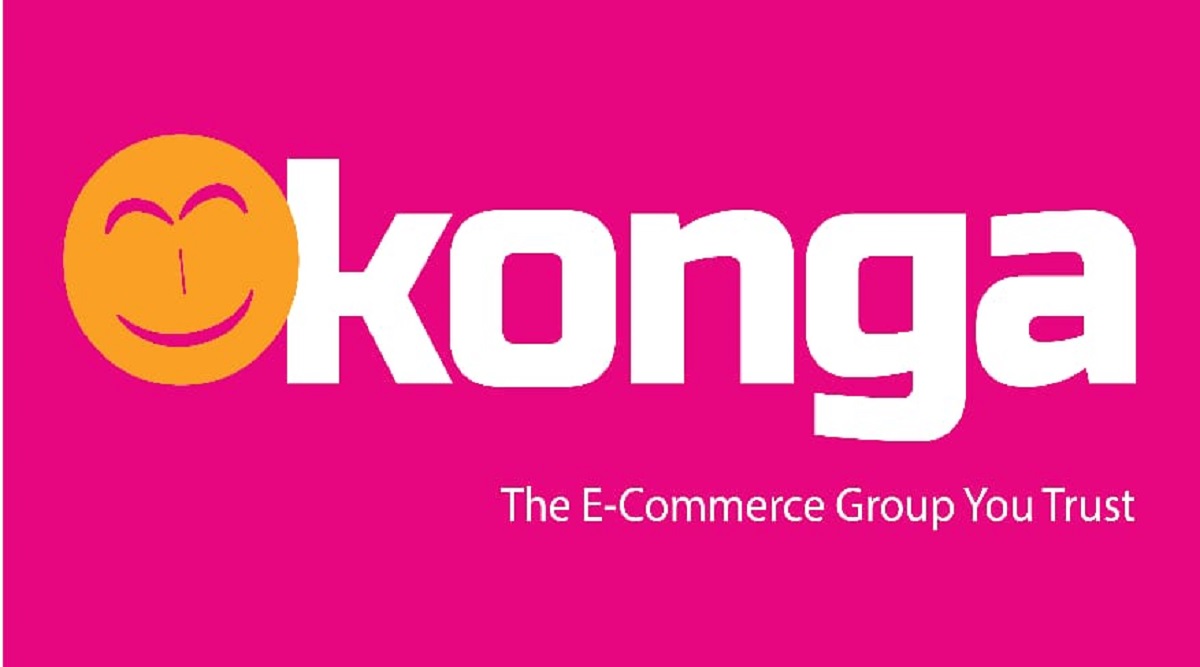E-Business
Over 150,000 New Malware Created Daily in 2Q2014

A whopping 160,000 new malware samples were generated in the second quarter of this year, bringing the number 15 million, with trojans once again accounting for the majority.
However, Potentially Unwanted Programs (PUPs) showed a major growth spurt, according to Panda Security, according to a report by Infosecurity Magazine.
PandaLabs, a Spanish security vendor’s research arm revealed the figures in its Quarterly Report for Q2, claiming that over those three months, a whopping 160,000 new samples were created every day.
Some 58.2% of newly created threats were trojans, a drop from Q1 but only because of the rise in PUPs (24.77%), it said.
The report explained that, “This increase in the number of PUPs is not by chance. Over recent months we have witnessed a significant increase in the creation of software bundlers, programs that install PUPs on computers along with the programs that the user actually wants to install – without asking for the user’s consent. Although these bundlers have been around for some time, new companies have sprung up who exploit these programs and profit from installing unwanted software without properly informing the user.”
When it comes to regional stats, China (51%) once again had the highest infection rate of any country.
Aside from Japan, which had an infection rate of 24.2%, the ten countries least affected by malware were European.
The UK came halfway down that list with 25% – well below the global average of 37%.
PandaLabs also noted an increase in attacks on iOS users during the quarter, specifically calling out a new piece of Chinese malware targeting unlocked iPhones and designed to steal user credentials.
Another high profile attack targeting Apple users in May demanded a ransom payment after locking their devices via ‘Find my iPhone’ technology.
There was good news in the quarter, however, with the FBI and the UK’s NCA temporarily disrupting the infamous Gameover Zeus botnet, allowing users to remediate their machines and install more effective security software, according to InfoSecurity reports.
E-Business
Konga Unveils ‘All in All, Everything ×2’ Campaign, Offering Month-Long Discounts Across Product Categories

Konga, Nigeria’s leading composite e-commerce giant, has announced the launch of its highly anticipated ‘All in All, Everything ×2 – Category Month’ campaign.. This month-long shopping festival, running from September 1 to September 31, offers customers unprecedented discounts across a vast range of products.

The campaign is strategically designed to empower households and businesses by providing a golden opportunity to enjoy massive savings from globally renowned brands across diverse product categories.
The core of the “Category Month” campaign lies in its dynamic, week-by-week approach. Each week, Konga will spotlight a specific category, delivering targeted discounts that excite and engage shoppers.. For instance, the first week is set to focus on the Home and Kitchen category, presenting customers with a chance to upgrade their living spaces and culinary tools at unbeatable prices. This phased approach allows shoppers to plan purchases and shop intentionally throughout the month.
This strategic campaign is made possible through robust partnerships with top brands from around the world. These collaborations enable Konga to not only offer substantial price cuts but also guarantee the authenticity and quality that shoppers have come to expect from Konga. The synergy between Konga’s expansive platform and these global powerhouses ensures exceptional value while reinforcing Konga’s reputation as a trusted source for premium goods at affordable prices.
Over the course of the month, shoppers will enjoy exciting discounts across categories, including Home and Kitchen, Electronics, BHPC/Konga Fashion, Power and Automobile, Phones and Tablets, Computing and Accessories, Drinks and Groceries, and Baby, Kids and Toys. Konga’s “Category Month” has something for everyone.
In addition to the incredible deals, the campaign is bolstered by Konga’s efficient logistics infrastructure, offering customers unparalleled convenience. Customers in select locations can leverage KongaNow, the company’s express delivery service, with guaranteed delivery within one to six hours on eligible items. This fast and reliable delivery ensures shoppers can enjoy their purchases almost immediately.
Industry watchers have hailed Konga’s innovative campaigns as a catalyst for driving consumer confidence in online shopping, while also giving partner brands unmatched visibility.. The Category Month campaign further strengthens Konga’s commitment to enabling a vibrant digital marketplace where value, affordability, and trust intersect seamlessly.
The Category Month campaign is a strategic effort to enrich the lives of its customers by making high-quality products more accessible. Customers are encouraged to visit the Konga website to explore all the offers and take full advantage of ‘All in All, Everything ×2 – Category Month’.
E-Business
Firm Warns of Phishing Through Fake University Login Pages Targeting Academia

As the new international academic year begins, Kaspersky has detected a wave of phishing webpages targeting college and university students as well as professors. Attackers are deploying fake login portals that mimic official university websites, tricking users into entering credentials which can lead to stolen data or a complete loss of access to their university accounts.

Links to these phishing portals are either distributed in emails or appear in web search results when looking for academic institutions’ login pages.
The fraudulent portals closely replicate the branding and design of legitimate university systems. Students of multiple academic institutions across different regions have been targeted, including in the Middle East, Turkiye and Africa (META) region.
If users enter their credentials on these fake academic portals, cybercriminals can steal sensitive data such as login details which grant access to university accounts containing personal information, academic records, and financial data. Attackers may also change the passwords, blocking students and professors from critical resources like course materials, email, or payment systems. Compromised accounts can be used to send phishing emails to peers, spreading the attack within university networks.
“Colleges and universities are vulnerable due to their reliance on digital platforms and the high volume of users accessing systems during the international back-to-school rush.
These fake login portals can appear convincing, exploiting the trust that students and professors place in their university systems. We’re urging the academic community to stay vigilant and double check the web addresses of their educational institutions’ login pages to avoid losing data,” commented Olga Altukhova, Senior Web Content Analyst at Kaspersky.
To stay safe against education fraud, Kaspersky recommends the following:
- Enable multi-factor authentication (MFA): Activate MFA wherever possible, adding an extra layer of security to your online accounts. Use a reliable password manager that doesn’t just store your passwords but also generates one-time passwords for 2FA automatically.
- Use a reliable security solution for comprehensive protection from a wide range of threats, such as Kaspersky Premium.
- Stay skeptical: Exercise caution when encountering “too good to be true” offers, especially if they require payments or personal information upfront.
- Verify the source: Thoroughly research any scholarships, giveaways, or offers that come your way. Look for official contact details and confirm legitimacy before taking any action.
- Secure personal information: Avoid sharing sensitive data online unless you’re absolutely certain about the legitimacy of the request.
- Use trusted sources: Stick to official school websites, recognised scholarship platforms, and reputable retailers when making payments or providing personal information.
E-Business
FG Shuts Down over 13.5m Social Media Accounts for Alleged Policy Violations

Federal government has confirmed the closure of 13,597,057 social media accounts over harmful content and breaches of the country’s digital code of practice.

The figure was contained in the Code of Practice 2024 Compliance Report, submitted by major technology firms including Google, Microsoft, and TikTok.
The report outlined efforts made by online platforms to curb offensive content and strengthen user protection.
The compliance framework, introduced in 2022 and jointly enforced by the Nigerian Communications Commission (NCC), the National Information Technology Development Agency (NITDA), and the National Broadcasting Commission (NBC), required platforms to address user complaints and remove content that violates community guidelines or national regulations.
According to the latest report, social media platforms collectively deleted 58,909,112 posts flagged as offensive within the year.
Authorities also recorded 754,629 user complaints, while 420,439 pieces of content were reinstated following successful appeals.
In a statement issued by Hadiza Umar, spokesperson, NITDA, commended global platforms for what she described as “continued compliance” with Nigeria’s Code of Practice. She noted that the submission of the annual reports demonstrates a shared commitment to creating a safer digital environment.
“The compliance reports provide valuable insights into the platforms’ efforts to address user safety concerns in line with the Code of Practice and their community guidelines,” Umar said.
“We remain committed to working with industry players, civil society, and regulatory partners to strengthen user safety measures, enhance digital literacy, and promote trust and transparency in Nigeria’s digital ecosystem.”
The government said the monitoring exercise underscores its drive to ensure that Nigeria’s growing digital space remains secure, responsible, and free from harmful content.

 Telecom2 days ago
Telecom2 days agoMTN Nigeria Empowers over 3,000 Customers with ₦579m in Mega Billion Promo

 News2 days ago
News2 days agoSuri’s Memoir Sparks Visionary Dialogue with Zimbabwean Ministers on Africa’s Future

 E-Financial2 days ago
E-Financial2 days agoUnion Bank of Nigeria Completes Merger with Titan Trust Bank

 E-Financial2 days ago
E-Financial2 days agoAMMBAN Faults CBN’s 60-day Deadline on PoS Geo-Tagging

 News2 days ago
News2 days agoAdlantique Named Nigeria’s Best in Digital Marketing, Content Creativity @ 2025 Beacon of ICT Awards

 General News2 days ago
General News2 days agoAirtel Africa Foundation Presents Nigerian Students with Tech Scholarships

 General News2 days ago
General News2 days agoCAC Postpones New Fee Implementation

 Telecom2 days ago
Telecom2 days agoSwitch Solutions to Lead Cybersecurity Innovation @GITEX Nigeria 2025















